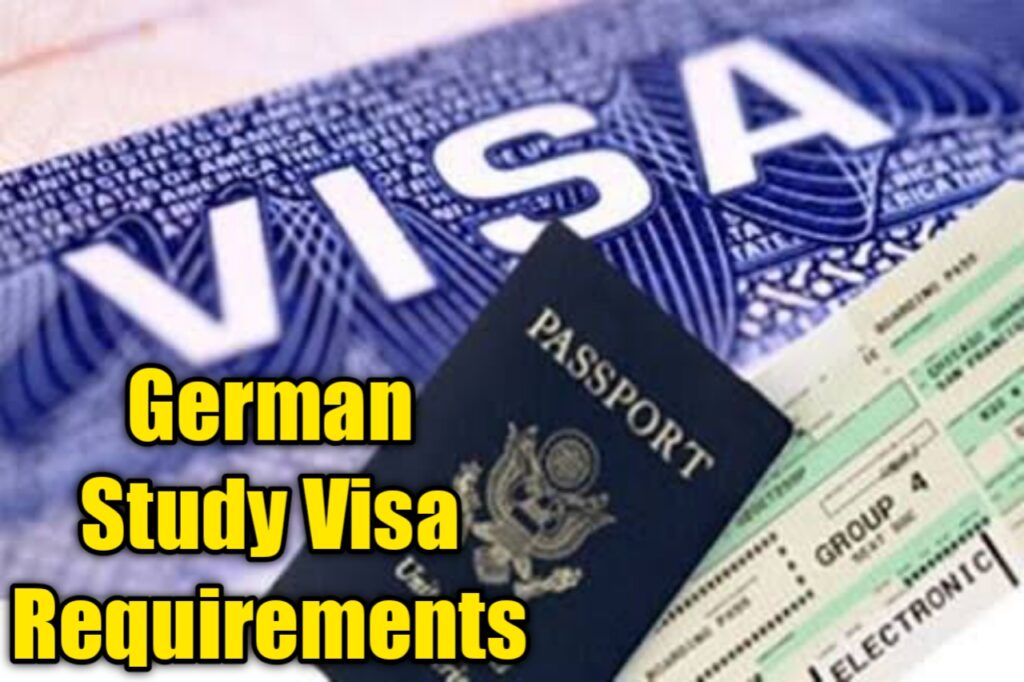German Study Visa Requirements and Application: A Comprehensive Guide

Do you want to study in Germany? Obtaining a study visa is one of the most important steps in pursuing your educational goals in Germany. The German study visa allows you to legally live and study in the country. In this comprehensive guide, we will delve into the requirements and application process for a German study visa, ensuring that you are well-prepared for your exciting academic journey.
1. Understanding the German Study Visa
What is a German Study Visa?
A German study visa, also known as a student visa or a student residence permit, is an official document that allows non-EU or EEA students to study in Germany for a set period of time. It is a legal requirement for international students and must be obtained prior to entering the country.
Types of German Study Visas
Germany offers two types of study visas: a “Language Course Visa” for students wishing to learn German and a “Student Applicant Visa” for those wishing to enroll in a full-time degree program. This article focuses on the Student Applicant Visa because it covers a wide range of academic pursuits.
2. Eligibility Criteria for a German Study Visa
To be eligible for a German study visa, you must meet certain requirements. These include:
Enrollment in a Recognized Institution
To apply for a German study visa, you must first be accepted into a recognized German educational institution. This can be a university, college, or other institution of higher learning that offers accredited programs.
Sufficient Financial Means
German authorities require students to show that they have sufficient funds to cover their living expenses while in Germany. Tuition, housing, health insurance, and daily expenses are all included.
Health Insurance Coverage
All students in Germany are required to have health insurance. Before applying for a study visa, you must provide proof of valid health insurance coverage in Germany.
Proof of Accommodation
Applicants must provide proof of suitable accommodation in Germany. This can be in the form of a rental agreement or a letter from a university confirming on-campus housing.
3. German Study Visa Application Process
There are several steps involved in applying for a German study visa. To ensure a smooth application experience, it is essential to familiarize yourself with the process. Here’s a rundown of the procedures:
Researching the Requirements
Before starting the visa application process, do extensive research on the specific requirements for your chosen study program as well as the German embassy or consulate in your home country. Various embassies may have different requirements or procedures.
Preparing the Documents
Gather all of the documents required for your visa application. A valid passport, completed application forms, proof of enrollment, financial statements, health insurance documentation, and accommodation details are usually required.
Applying at the German Embassy or Consulate
Once you’ve gathered all of the necessary documents, apply for a visa at the German embassy or consulate in your home country. Make an appointment ahead of time and bring all necessary documents with you.
Visa Interview
A personal interview may be required as part of the visa application process in some cases. The interview allows the embassy or consulate to confirm the information provided and ask additional questions about your study plans.
4. Financial Requirements for a German Study Visa
The ability to finance your studies in Germany is an important aspect of the visa application process. Here are the two most important financial considerations:
Blocked Bank Account
In Germany, students often open a “blocked bank account” to prove they have enough money. This account only lets you take out a set amount of money each month. This makes sure that you have enough money to cover your living expenses while you’re in school.
Scholarship Opportunities
Germany provides numerous scholarships to international students. Research and apply for scholarships related to your field of study to reduce financial burdens and improve your chances of obtaining a study visa.
5. Accommodation for International Students in Germany
Finding suitable accommodation is essential when studying in Germany. Consider the following options:
On-Campus Housing
Many universities offer on-campus housing, such as dormitories or student residences. These accommodations are convenient and provide opportunities for students to socialize with one another.
Private Rentals
Another popular option is to rent an apartment or a room in a shared flat (WG). Websites and local housing agencies can assist you in finding suitable private rentals, but be prepared to start your search early, as demand in popular cities can be high.
6. Work Opportunities for International Students in Germany
For international students, Germany provides a variety of work opportunities that can help support your studies and enrich your experience. Among these are:
Part-Time Jobs
As an international student, you are permitted to work part-time for a maximum of 20 hours per week. Part-time jobs can provide extra income as well as practical experience relevant to your field of study.
Internships
Internships provide valuable practical training as well as an excellent opportunity to network and gain insight into the German job market. Many universities have career centers dedicated to assisting students in finding internships.
Post-Study Work Options
Germany offers international students post-study work opportunities, allowing them to stay in the country after graduation to look for work. Because the German job market welcomes highly qualified professionals, it is an appealing destination for international students.
7. Extending a German Study Visa
If your degree program in Germany lasts longer than the duration of your initial study visa, you may need to extend it. To avoid legal issues, it is important to know the extension process and requirements. For more information, contact your local foreigner’s office (Ausländerbehörde).
8. Conclusion
Obtaining a German study visa is a major process for international students planning to study in Germany. You can embark on a rewarding academic journey in this culturally rich and academically renowned country by thoroughly understanding the requirements and following the application process.
9. Frequently Asked Questions (FAQs)
Q1. Can I work full-time on a German study visa?
No, as an international student, you are only permitted to work 20 hours per week part-time.
Q2. Do I need to learn German before applying for a German study visa?
It is dependent on the program you have chosen. Some programs are offered in English, while others may require German language proficiency. Check the language requirements for your specific program.
Q3. Can I switch my study visa to a work visa after graduation?
Yes, Germany provides post-study work opportunities for international students, allowing them to stay in the country and look for work after finishing their studies.
Q4. Is health insurance mandatory for international students in Germany?
Yes, all students in Germany are required to have health insurance. You have the option of purchasing either statutory or private health insurance.
Q5. How early should I start the visa application process?
Start the visa application process as early as possible, preferably several months before your intended date of travel. This will allow sufficient time for gathering documents and completing the necessary procedures.
